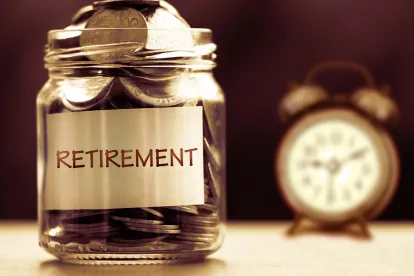As COVID-19 continues its upheaval of nearly all aspects of life, retirement plan administration included (see some of our prior discussions here, here, here and here), the Internal Revenue Service recently issued guidance providing additional relief for the sponsors of certain plans. IRS Notice 2020-52 clarifies requirements for mid-year changes to a safe harbor 401(k) plan that only reduces contributions made on behalf of highly compensated employees (HCEs), and provides temporary relief from certain requirements that would otherwise apply when a plan sponsor chooses to reduce or suspend safe harbor contributions during a plan year.
Contributions and benefits provided under a qualified retirement plan must not discriminate in favor of HCEs. Certain tests must be run on a plan annually —the Actual Deferral Percentage (ADP) and Actual Contribution Percentage (ACP) tests—to confirm that a plan is non-discriminatory. Sponsors may instead choose to design their plan as a “safe harbor” plan by providing matching or nonelective contributions to non-HCEs under certain formulas specified under the safe harbor rules. By doing so, a plan is generally deemed to pass the ADP and ACP tests. In most cases, the safe harbor provisions of a plan must be adopted before the first day of a plan year and must remain in place for the entire 12-month period that follows. If a sponsor does wish to make changes during a plan year—in particular, amending the plan to reduce or suspend the safe harbor contributions—they must either be operating at an economic loss or have included language in their annual safe harbor notice that a reduction or suspension may occur mid-year with 30 days’ advance notice.
The IRS recognizes, however, that many plan sponsors are facing unexpected and unprecedented financial hardship this year in light of COVID-19. Sponsors may not know yet whether they are operating at an economic loss for the year and/or may not have included the requisite language regarding potential changes in their most recent safe harbor notices. Sponsors may also have difficulty satisfying the timing requirements for suspending safe harbor contributions when doing so immediately is necessary to ensure they can meet their payroll and other financial obligations.
Because of these considerations, Notice 2020-52 clarifies that a mid-year amendment only reducing contributions to HCEs is not a safe harbor contribution change (as safe harbor contributions by definition are only made to non-HCEs), though an updated safe harbor notice is still required. In addition, a plan may be amended to reduce or suspend safe harbor contributions between March 13, 2020, and August 31, 2020, without requiring economic loss or language in the annual safe harbor notice allowing such a mid-year change. Such an amendment, regarding nonelective contributions only, may also be made without 30 days’ advance notice, as long as the amendment is effective on a prospective basis and an updated safe harbor notice is provided no later than August 31, 2020. (Thirty days’ advance notice is still required for changes to safe harbor matching contributions as those contributions may directly affect the amount a participant chooses to defer.)
The relief under Notice 2020-52 also applies to safe harbor 403(b) plans.




 />i
/>i
